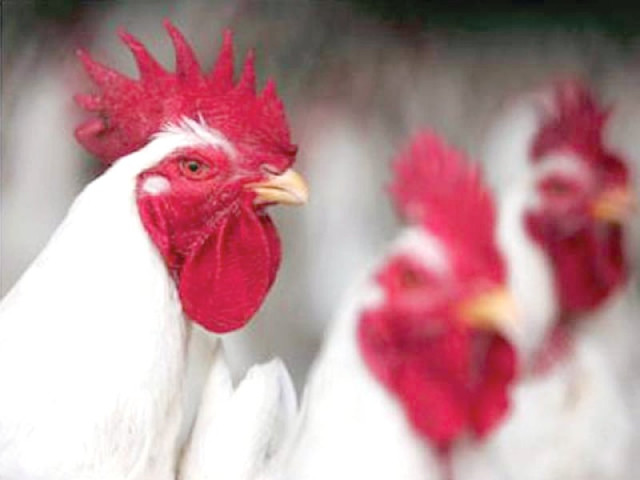Poultry processors in hot water
Say zero-rated import of chicken products led to closure of state-of-the-art units.

Taxes: 17% and 30%, the sales tax and duty, respectively, being paid by poultry processors on import of inputs. PHOTO: FILE
With this, people associated with the poultry business, on an average, make profits, but the signs are not encouraging for companies which have invested in processing units to add value and make different chicken products. These processors are facing a tough time these days despite charging higher prices for their products.
The processed chicken industry is still in its infancy and comprises only 1% of chicken production in the country. However, people engaged in this business are worried about the future of the industry.

“The problem started the day government announced zero-rated sales tax on import of some goods – chicken products among them,” said Khalil Sattar, former chairman of the Pakistan Poultry Association while talking to a group of journalists here on Tuesday.
The step encouraged some companies to stop production in the country, import processed poultry from Malaysia and market it under their brand names, he said. This year, he added, it was the turn of food products to face the music as sales tax was imposed on processed food including milk in the budget for 2013-14.
However, the milk industry, which is said to have a strong lobby in power corridors, was later exempted from the tax. Sales tax on inputs imported by poultry processors remained in place.
“We now find ourselves in a difficult situation,” said Sattar, as multinational food chains were given the facility of zero-rated sales tax, but “we have to pay duty and sales tax on inputs used in products processed for international food chains”.
India imposed 100% duty on meat and chicken imported by fast food chains, forcing them to source their products at home. On the other hand, Pakistan reduced the duty on import of processed food by multinational food chains to 25% from 50%, according to Sattar.
He argued that cost of production had already increased not only due to 17% sales tax and 30% duty on goods imported to add value to the products, but also because of constraints faced by the country – among them energy crisis was on top.
In such a scenario, if the government kept allowing zero-rated imports from Malaysia and other countries, which buy chicken from European countries and export to Pakistan after adding value, where would local players go, he asked.
Countries like Malaysia and Indonesia import the subsidised meat and after processing export it to Pakistan at very low prices.
“Obviously, Pakistani food processing industry is not in a position to compete with subsidised meat products that too with disadvantage in terms of duty imposed,” Sattar said, pointing out that some food processors had been forced to shut down their expensive and state-of-the-art units.
The indifference of regulators was possibly leading the consumers to consume food produced against the principles of Islam, he claimed and said poultry feed used in most of the non-Muslim countries contained waste from eateries and restaurants including meat of animals prohibited in Islam.
Published in The Express Tribune, September 4th, 2013.
Like Business on Facebook, follow @TribuneBiz on Twitter to stay informed and join in the conversation.



















COMMENTS
Comments are moderated and generally will be posted if they are on-topic and not abusive.
For more information, please see our Comments FAQ